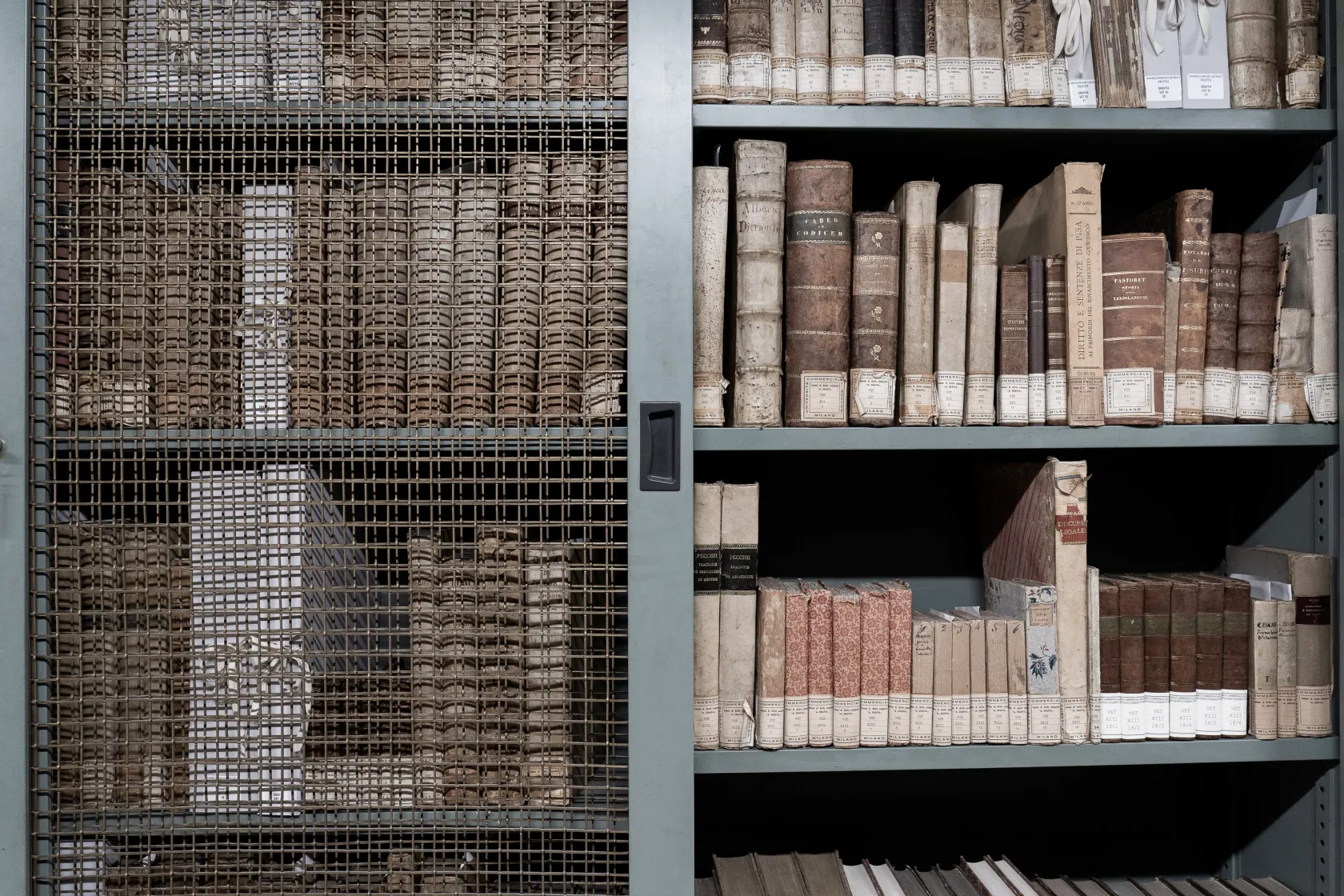
Both Old and New, the Library's Collections Tell the Story of the Social Sciences
The Bocconi Library collections include 20,000 meters of shelving, 455,000 volumes, 14,000 titles of international hardcopy periodicals as well as 225 from the 16th and 17th centuries, along with numerous volumes from the 18th and 19th centuries. These collections, like the archives, also represent a heritage devoted to research.
The Library was founded in 1903 thanks to an initial donation from the Milan Chamber of Commerce. It was gradually enlarged by the legacies of bibliophile professors such as Angelo Sraffa and organized by enlightened librarians such as Fausto Pagliari. Today, with a mix of old and new, it represents all the phases of the birth and development of economics while also collecting many other publications, including 17,000 paper theses and all of Bocconi's publications about the University.
"We have 98 volumes from the 16th century and 127 from the 17th century. Many of these, and many of the old books in general, are from Angelo Sraffa's personal library, who collected the first editions of legal treaties and codes," explains Giacomo Crespi, Head of Collections in the Library & Archives Unit. "For example, Sraffa's collection of all the editions of what is considered the first commercial law textbook in history – De mercatura sive de Mercatore by Benvenuto Stracca – is notable, starting with the first edition printed by Paolo Manuzio in the 16th century ," adds Cinzia Di Deo from the Acquisitions office. Not to mention the first complete Italian edition of Diderot and d'Alembert's Encyclopedie, published from 1758 to 1776.
The unique way in which the Library was able to add to its collections in the immediate post-war period – despite the difficulty finding publications – was also interesting. "The University and Library leveraged the community of alumni and alumnae, who sent editions from the countries around the world where they were located," says Di Deo. "One of them was Angelo Sraffa's son, to whom we owe the fact that the Bocconi Library today is one of the very few Italian institutions to possess a complete collection of The Economist, from its very first issue."
